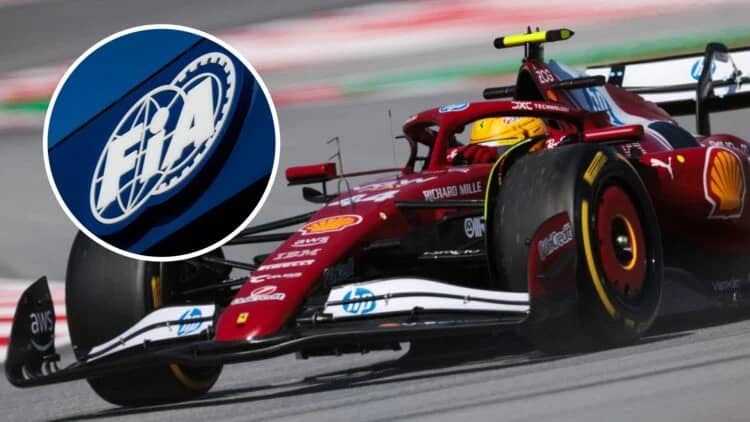F1 News Today: Red Bull absence confirmed as new FIA penalty threat em…. read more
Red Bull Racing’s Team Principal, Christian Horner, recently disclosed a significant absence during the Japanese Grand Prix that nearly jeopardized Max Verstappen’s victory. This revelation coincides with emerging threats of new penalties from the FIA, adding complexity to Red Bull’s current challenges.
Absence at the Japanese Grand Prix
At the Japanese Grand Prix, Verstappen secured a dominant pole-to-flag victory, fending off challenges from McLaren’s Lando Norris and Oscar Piastri. Despite McLaren’s superior race pace, strategic decisions and the Suzuka Circuit’s limited overtaking opportunities prevented them from overtaking Verstappen. Post-race, Verstappen acknowledged McLaren’s faster car but noted their inability to capitalize due to DRS constraints. Horner praised Verstappen’s flawless performance throughout the weekend.
However, Horner revealed that a key member of Red Bull’s technical staff was absent during the race, which almost led to a strategic oversight that could have cost Verstappen the win. The absence was due to unforeseen personal circumstances, leaving the team to adapt swiftly to ensure race operations proceeded smoothly. This incident highlighted the team’s resilience and ability to manage unforeseen challenges effectively.
Emerging FIA Penalty Threats
Complicating matters, Red Bull is contending with potential new penalties from the FIA. The team has already faced sanctions for breaching the cost cap regulations, including a $7 million fine and a 10% reduction in wind tunnel time over a 12-month period. Horner described these penalties as “draconian,” emphasizing their potential impact on the team’s performance in the upcoming seasons.
The reduction in wind tunnel time is particularly concerning, as it limits the team’s ability to develop and refine their car’s aerodynamics. Horner noted that this constraint could translate to a loss of between 0.25 to 0.5 seconds per lap, significantly affecting their competitiveness. He expressed that winning the Constructors’ Championship had inadvertently placed them at a disadvantage, as the penalties are more severe for the reigning champions.
These developments have intensified discussions within the F1 community regarding the fairness and effectiveness of the cost cap regulations. While some teams advocate for stringent penalties to maintain competitiveness, others, like Red Bull, feel that the current sanctions disproportionately affect successful teams, potentially hindering their performance and innovation.
Looking Ahead
As the season progresses, Red Bull faces the dual challenge of adapting to technical absences during critical races and navigating the implications of FIA penalties. The team’s ability to innovate within the constraints imposed by the penalties will be crucial in maintaining their competitive edge. Horner’s acknowledgment of the difficulties ahead reflects a realistic approach to the team’s strategy, emphasizing efficiency and adaptability in their development processes.
The upcoming races will serve as a testament to Red Bull’s resilience and strategic prowess, as they strive to overcome these challenges and continue their pursuit of championship titles.



